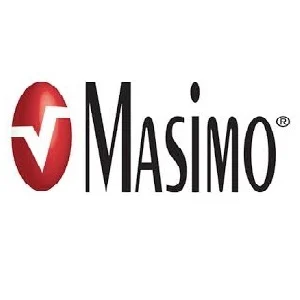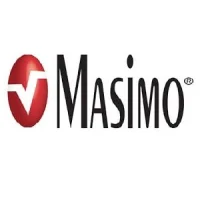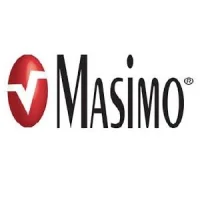Masimo announced today that the Dubai Health Authority (DHA), the government organization that oversees the healthcare systems of Dubai, is augmenting its current inventory of Masimo equipment and technology with the implementation of Masimo Patient SafetyNet™*, a supplemental remote monitoring and clinician notification system, at two hospitals in Dubai.
Masimo Patient SafetyNet enables information from bedside monitors, such as Masimo Root® with the Radical-7® or wearable Radius-7® Pulse CO-Oximeter®, to be accessible from a central viewing station. When changes occur in measured values, which may indicate deterioration in a patient’s condition, Patient SafetyNet automatically sends wireless alerts directly to clinicians, wherever they may be. In addition, Patient SafetyNet can automate the transfer of patient data, including admission data, vital signs, early warning scores (EWS), and other physiological parameters, directly to hospital electronic medical record (EMR) systems, helping to improve clinician workflows and reduce the possibility of transcription errors.
Dr. Andreas Taenzer and colleagues found in an 11-month study conducted at Dartmouth-Hitchcock Medical Center that using Patient SafetyNet and Masimo SET® pulse oximetry as part of a comprehensive alarm management strategy reduced rescue events by 65% and intensive care unit transfers by 48%, and as a result, reduced costs by $1,480,000.1,2 In a subsequent article, they announced that after five years, Dartmouth-Hitchcock had had zero preventable deaths or instances of brain damage due to opioids since the installation of Patient SafetyNet.2 In 2016, after ten years, they reported achieving a 50% reduction in unplanned ICU transfers and a 60% reduction in rescue events, despite increases in patient acuity and occupancy.3
The two Dubai Health Authority medical centers implementing Patient SafetyNet are Dubai Hospital (625 beds), which provides general medical and surgical care, and Latifa Hospital (367 beds), which specializes in maternal and child care. Dubai Hospitalinstalled its first Patient SafetyNet in 2013. Latifa Hospital is in the process of installing four systems, with a further system planned for Dubai Hospital. “We are excited to deepen our partnership with Masimo,” said Humaid Al Qatami, Chairman of the Board and Director General of Dubai Health Authority. “The Dubai Health Authority’s mission is to develop an integrated and sustainable healthcare system that ensures our comprehensive services achieve the highest international standards, and we believe that Masimo’s monitoring devices, now even more connected to hospital infrastructure through the power of Patient SafetyNet, will help us meet that goal.”
“Patient SafetyNet, in conjunction with Masimo SET® pulse oximetry, enables continuous supplemental monitoring of active patients in post-surgical wards and can help save the lives of patients on opioids, among many other benefits,” said Joe Kiani, Founder and CEO of Masimo. “We applaud the Dubai Health Authority, dedicated to providing no less than the best health care in the world, for recognizing the importance of implementing such a proven and powerful centralized monitoring and patient surveillance system.”
References
- Taenzer AH et al. Impact of Pulse Oximetry Surveillance on Rescue Events and Intensive Care Unit Transfers: A Before-and-After Concurrence Study. Anesthesiology. 2010 Feb;112(2):282-7.
- Taenzer AH et al. Postoperative Monitoring – The Dartmouth Experience. Anesthesia Patient Safety Foundation Newsletter Spring-Summer 2012. Available online.
- McGrath SP et al. Surveillance Monitoring Management for General Care Units: Strategy, Design, and Implementation. The Joint Commission Journal on Quality and Patient Safety. 2016 Jul;42(7):293-302.
*The use of the trademark SafetyNet is under license from University HealthSystem Consortium.
Source: Masimo










